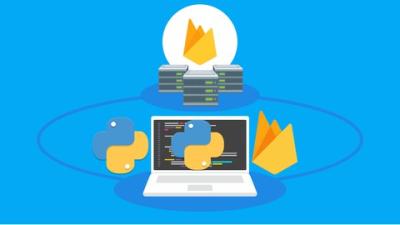Description
Welcome to Python Firebase with Firebase Admin SDK course, there are different topics and sections in this course.
What is Python ?
Python is an interpreted high-level general-purpose programming language. Its design philosophy emphasizes code readability with its use of significant indentation. Its language constructs as well as its object-oriented approach aim to help programmers write clear, logical code for small and large-scale projects.
What is Firebase ?
Firebase is a platform developed by Google for creating mobile and web applications. It was originally an independent company founded in 2011. In 2014, Google acquired the platform and it is now their flagship offering for app development.
What is Firebase Admin SDK ?
The Admin SDK is a set of server libraries that lets you interact with Firebase from privileged environments to perform actions like:
- Read and write Realtime Database data with full admin privileges.
- Programmatically send Firebase Cloud Messaging messages using a simple, alternative approach to the Firebase Cloud Messaging server protocols.
- Generate and verify Firebase auth tokens.
- Access Google Cloud resources like Cloud Storage buckets and Cloud Firestore databases associated with your Firebase projects.
- Create your own simplified admin console to do things like look up user data or change a user’s email address for authentication.
Firebase Admin SDK supports different programming languages like Java, C#, NodeJS, C++ and Python, in this course we are interested in
integrating Firebase Admin SDK with Python Programming Language.
Course Structure
This course is divided in to different sections.
1: In the first section we are going to learn that how we can create a Project in Firebase, how we can generate private key for our service account, and how we can initialize Firebase Admin SDK in Python Programming Language.
2: In the second section we are going to learn about Firebase Authentication, so Firebase Authentication provides backend services, easy-to-use SDKs, and ready-made UI libraries to authenticate users to your app. It supports authentication using passwords, phone numbers, popular federated identity providers like Google, Facebook and Twitter, and more, in this course we are interested in creating users with email and password.
3. In the third section we are going to learn about Firebase Realtime Database, now the The Firebase Realtime Database lets you build rich, collaborative applications by allowing secure access to the database directly from client-side code. Data is persisted locally, and even while offline, realtime events continue to fire, giving the end user a responsive experience.
4. In the fourth part we want to talk about Firebase Cloud Firestore with Python, the Cloud Firestore is a cloud-hosted, NoSQL database that your Apple, Android, and web apps can access directly via native SDKs. Cloud Firestore is also available in native Node.js, Java, Python, Unity, C++ and Go SDKs, in addition to REST and RPC APIs.
5. In the fifth part we are going to learn about Firebase Cloud Storage, the Cloud Storage for Firebase lets you upload and share user generated content, such as images and video, which allows you to build rich media content into your apps. Your data is stored in a Google Cloud Storage.
6. In the sixth part we are going to learn that how we can work with Pyrebase4, it is a wrapper library around firebase admin sdk.

